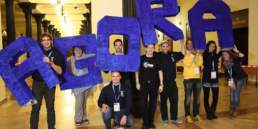2013 was an eventful year for AEGEE: The Golden Times asked more than 100 active members how they perceived the year – and what they foresee for 2014. In this second edition: read what Anna Gumbau Martínez, Holger Schmitt, Alma Mozgovaja, Panagiotis Barlampas, Marije Arentze and Balázs Kovács said.
Anna Gumbau Martínez, Editor-in-chief of The AEGEEan, EurStory
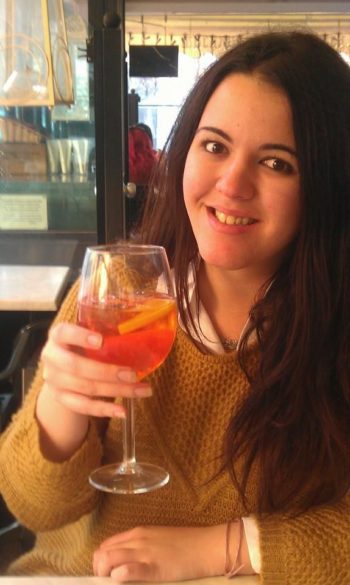 What was your personal AEGEE highlight in 2013?
What was your personal AEGEE highlight in 2013?
There are plenty of them, since it has been a really active year for me. Being on stage in ZarAgora and hearing that our EurStory project, in which we had been working for almost a year, had been approved will remain truly special to me. Also, having the support and the encouragement of so many members after my selection as editor-in-chief of The AEGEEan.
AEGEE-Europe had many memorable moments in 2013. Which one do you remember most vividly or was outstanding?
I felt enormously proud of AEGEE-Europe when I heard the news that Europe on Track had won the Charlemagne Prize. I had some friends and even a lecturer from my university that had read the news in the Spanish media – since it was presented as a Spanish project – and thought of me when they read about AEGEE. It drew a big smile on my face and I felt really lucky to be a part of this family that has made such a positive impact.
Who was for you the outstanding member in 2013?
There are so many members who have made a positive impact this year. I have met so many inspiring and motivating people that it would be hard to choose one. However, I would point to Patricia Anthony: she has successfully managed to handle so many tasks on the local and the European level no matter the circumstances: The AEGEEan, NetCom, ACT, SWG… I think there will never be someone as devoted as her with the magazine. I am still waiting for some time-management lessons…
Which was for you the outstanding antenna in 2013?
AEGEE-Zaragoza – and not only for having organized a great Agora. I have a very good relationship with some of their members and I know how hard they have been working throughout the year. Besides of ZarAgora, in July they organized the European Structured Dialogue (EuroSD) conference with several international youth organizations. I attended the event as a helper ad it turned out to be very successful due to a great teamwork. Moreover, I know that through events like these, they have motivated many new members to become active and ensure that they will keep rocking for the next years.
What was for you the outstanding project in 2013?
Europe on Track has left its footprint in the history of AEGEE. I would also say the Summer University Project: many improvements have been introduced, the SUCT worked extremely hard on it and it is breaking records every year.
What do you foresee as a highlight or big topic in AEGEE in 2014?
The European Parliament elections will surely influence our activity in 2014 as they are crucial for the future of the EU. Besides, I am also very curious to know how the topic of nationalism will be addressed at the EBM in Lublin…
What are your personal AEGEE plans for 2014?
By now my plans are to keep up with my tasks as editor-in-chief of The AEGEEan and the board of the IPWG, as well as the Project Team of EurStory. After my term finishes… we will see which plans will come up. That’s the good thing of AEGEE, you never know which new goals will be knocking at your door!
How and where will you spend New Year’s night?
Celebrating the 25th anniversary of AEGEE-Oviedo with some other awesome AEGEEans, which will also make a very nice start of 2014.
Holger Schmitt, Network Commission
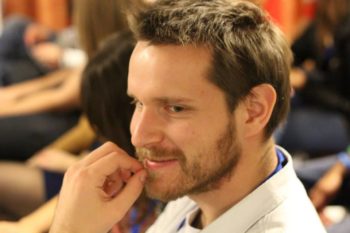 What was your personal AEGEE highlight in 2013?
What was your personal AEGEE highlight in 2013?
My highlight this year was definitely the month July, when I participated in the Summer University in Ukraine with amazing people and then directly went from Lviv on to Krakow to organize my own Summer University Krakow-Berlin with also awesome people. So my SU month was definitely the highlight of the year.
AEGEE-Europe had many memorable moments in 2013. Which one do you remember most vividly or was outstanding?
I recall personally the reelection of the CD at Agora Rhein-Neckar, where I was a helper. After that there seemed to be a certain harmony in the world of AEGEE-Europe, which lasts till now.
Who was for you the outstanding member in 2013?
Personally I would like to mention Alex Sieber, who was main organizer of Agora Rhein-Neckar as well as Hans-Peter “Hape” Bretz, who was just great in his activity as SUCT project manager and who I am always happy to see in Berlin.
Which was for you the outstanding antenna in 2013?
Right now I would like to say AEGEE-Krakow, since they are insanely active, involved in almost every project – and I could cherish working with them during the Summer University organisation
What was for you the outstanding project in 2013?
Definitely the Y Vote project, since it will have a real impact on many people this year and before next year’s election.
What do you foresee as a highlight or big topic in AEGEE in 2014?
Also Y Vote, I believe.
What are your personal AEGEE plans for 2014?
My personal AEGEE plans involve travelling as much as possible as Netcommie, having an RTC in Eastern Germany, organizing the Y Vote Convention in Berlin and trying to commit myself as much as I can being Network Commissioner.
Alma Mozgovaja, Editor-in-chief of the Key to Europe, former CD
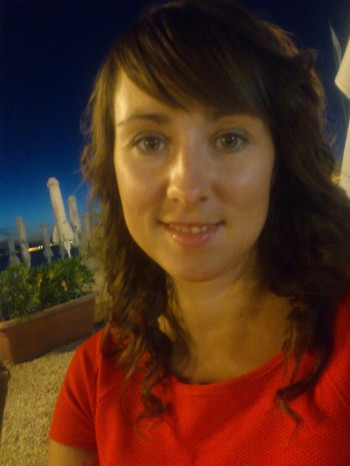 What was your personal AEGEE highlight in 2013?
What was your personal AEGEE highlight in 2013?
My very personal highlight was this summer when all the work for the new edition of AEGEE’s annual review “Key to Europe” took place, where I was one of the editors-in-chief. It’s very highlighting, because it includes a half of the highlights from 2013, covering in this magazine the period from July 2012 till June 2013.
AEGEE-Europe had many memorable moments in 2013. Which one do you remember most vividly or was outstanding?
For me the most memorable was a conference about Croatia’s accession to the EU that was organized thanks to the European Commision in cooperation with AEGEE in Zagreb. It was a different feeling when discussing, a different connection with other participants, a different approach to the event. I was very proud of the contribution of AEGEE members there. It was very easy to see how much more open we are, how many different competences we have and the different topics we are able to discuss.
Who was for you the outstanding member in 2013?
For me it is Alla Resheten, who has been active in AEGEE for some time now, but this year was kind of a closure of this lifetime experience that we call AEGEE. She just closed the first cycle of the Eastern Partnership project, finished her year of being a Chairperson of AEGEE and has been very involved in improving AEGEE in the past years. She is an outstanding member of 2013 and a very dear AEGEE friend of mine.
Which was for you the outstanding antenna in 2013?
AEGEE-Valladolid, not only because they organized the opening convention of the Y Vote project, but also because I have seen a lot of struggles in order to get that dot of Valladolid back on the AEGEE map. It started at the end of 2010 and now three years later I can tell that it was totally worth it – every e-mail, every meeting just to establish a contact, which later grew into an antenna.
What was for you the outstanding project in 2013?
I cannot really stress out any particular project in 2013. I think quite a lot of projects have worked hard to improve their work and have meaningful impact within AEGEE and in society. I can just wish all projects to keep fighting and the fruits will come.
What do you foresee as a highlight or big topic in AEGEE in 2014?
I want to believe that first half of the year we, as AEGEE, will be very busy with active promotion of youth political participation and the European Parliament elections. It is an event what takes place once in five years and it is important for young people to take their stand and participate. Moreover, AEGEE members should not just participate, but empower young people to do it themselves.
What are your personal AEGEE plans for 2014?
I think there is not so much left for me in 2014… I have planned to have my 10th Agora, this time organizing it from local organizer’s perspective In Patras. And of course the biggest project-campaign of 2014, Y Vote 2014, where I found myself in the position of Quality Assessment manager, working on the project’s impact measurement.
How and where will you spend New Year’s night?
It will be in Greece, but still don’t know if it will be in snowy mountains, at the breezy seaside or cozy indoors. Whatever it will be, it will be happy! Happy, also for you!
Panagiotis Barlampas, PR responsible of AEGEE-Athina
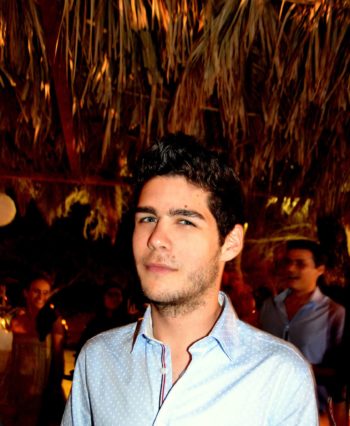 What was your personal AEGEE highlight in 2013?
What was your personal AEGEE highlight in 2013?
I had several AEGEE highlights in 2013. More or less each and every European event was a collection of moments to remember for life. If I had to choose one, I would say the EBM Valletta for several reasons! It was my first large event in AEGEE, I had a wonderful time, learned a lot, met a lot of interesting AEGEEans, stole the AEGEE-Europe flag with Apostolis and most importantly it was the event where I introduced AEGEE to my sister Margarita, who is current board member of AEGEE-Patra.
AEGEE-Europe had many memorable moments in 2013. Which one do you remember most vividly or was outstanding?
The success of Europe on Track! I believe it was the best moment of the year! It was a really cool idea that did come to life and won awards and outstanding critics! I am looking forward to Europe on Track 2.0!
Who was for you the outstanding member of 2013?
Outstanding members of 2013 are all the AEGEEans, whose work is motivating people to join AEGEE. They can be HRs, PRs or simply members who pass on the AEGEE spirit, without them we wouldn’t be able to move forward.
Which was for you the outstanding antenna of 2013?
I will go south again and choose AEGEE-Valletta! My Maltese friends organized and hosted a wonderful statutory event that overcame our expectations. EBM 2013 is the first personal experience I mention, when I am talking to a new member.
What was for you the outstanding project in 2013?
I would definitely say the Y Vote initiative. Projects like this should set the example that a youth organization can be both politically independent and politically active.
What do you foresee as a highlight or big topic in AEGEE in 2014?
The main attraction of our European Student’s Forum are the SUs. Imagine that even four months before the release of the applications people continuously inquire information about dates and places.
Just today I read an article from the SUCT about some changes concerning the amazing SUs, so I am looking forward for an improved highlight for the year 2014.
What are your personal AEGEE plans for 2014?
AEGEE-Athina’s favorite month is December, because besides Christmas we elect motivated people to continue our 27-year old legacy. So on 14th of December I will candidate for a second year as PR responsible for my local. AEGEE for me is like a drug, I cannot quite that easily.
How and where will you spend New Year’s night?
I would like to say “In a New Year’s AEGEE event”, but it wouldn’t be true. Christmas is the only time of the year that I say goodbye to my university life and my AEGEE family and go back to Spetses – the island I come from – to spend time with family and friends!
Marije Arentze, EBM Lublin Content Manager
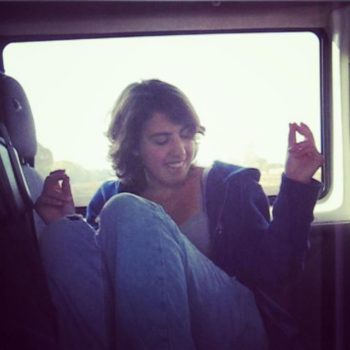 What was your personal AEGEE highlight in 2013?
What was your personal AEGEE highlight in 2013?
Contrary to 2012, this AEGEE year did not have many highlights for me. I have been almost completely off the radar for a few months, and I am back and active now for only a few weeks. However the moment that was most special for me personally is a great and very recent one: the moment I heard that I was selected as content manager for EBM Lublin, about two weeks ago. Oh, the joy!
AEGEE-Europe had many memorable moments in 2013. Which one do you remember most vividly or was outstanding?
The moment I will never forget is the weekend early in June when the protests in Turkey broke loose. I remember getting a Facebook message from Gizem and Luis on Saturday morning, in which Gizem called for help to spread information about the violence and Luis told me to centralize information via the AEGEEan. So we made a Facebook page and I have spent all weekend looking for news, keeping contact with protesters on the streets, and publishing and sharing every piece of information I could lay my hands on. Later Patricia, Wieke and Anna – on Twitter – joined. It was a very intense weekend for me, and I remember losing a lot of sleep that night thinking about the people on the streets and trying to digest all the violence I had seen and read about. Another memorable moment was the closing plenary of Agora Rhein-Neckar, which I followed via livestream. I felt miserable because I could not be there, but I was no less proud to see AEGEE-Den Haag, which I helped to found, singing the Convention and to see Dominique getting elected as Netcom.
Who was for you the outstanding member in 2013?
There are several. Firstly Paul, for proving he made the right choice to candidate for chair and having the drive to go for a second term, while doing several other tasks in AEGEE at the same time. His dedication to AEGEE is exceptional and he never ceases to amaze me. Secondly Anna Gumbau, for taking up the role of Editor-In-Chief of the AEGEEan and being ambitious about it, also while having several other AEGEE tasks. It is fascinating and heartwarming to see how some people just never seem to tire. Lastly Fabian Brüggemann, for providing great personal eye-openers and for his mediating skills!
Which was for you the outstanding antenna in 2013?
The most outstanding antenna to me personally was my own one. During the last 3.5 years, I have made very good friends in AEGEE-Leiden, who are never afraid to be honest with me, even if it might not be what I want to hear. At the same time we always have each other’s back and we support each other in what we do on the European level. It is a very warm and loyal local, where I love to be a part of. Plus they are getting more and more involved in the network and more and more awesome every year, with great new and fresh thematic initiatives.
What was for you the outstanding project in 2013?
Europe on Track of course! Winning the Charlemagne prize is the biggest milestone any project has reached in years, and it is something to be really, really proud of.
What are your personal AEGEE plans for 2014?
Until February I will be occupied with creating content for EBM Lublin. I hope we can make it a real high-quality thematic conference, and I am really enjoying the cooperation with Lavinia and the others. We both have an academic interest in nationalism, but both from a very different angle, which promises some very interesting interactions. After the EBM work has finished, I have no clue what I will do. I will surely stay active in my local and participate in online Facebook discussions during the Agora, if I can’t be there in person. For the rest, I will see if anything comes my way.
Balázs Kovács, President of AEGEE-Debrecen
What was your personal AEGEE highlight in 2013?
There were many so it is difficult to choose. Yet, among the fondest ones was when our organizers’ team was saying goodbye to our participants at the end of the rather adventurous Traveling Summer University of AEGEE-Debrecen and AEGEE-Sibiu, and we got standing ovations from them. Another one was when we found out that AEGEE-Debrecen was honored with the “Local of the Month” title.
AEGEE-Europe had many memorable moments in 2013. Which one do you remember most vividly or was outstanding?
Having had a former local board member from Debrecen, Réka Salamon, as coordinator of the brilliant initiative “Europe on Track”, made us super delighted when this new AEGEE-Europe project won the Charlemagne Youth Prize.
Who were for you the outstanding members in 2013?
For me, Dóra Cseresnyés, János Rák, Katalin Tóth, László Mracskó, Noémi Lőwy, Nóra Abdel-Salam, Zita Balás, Zsófia Tallódi, Zsuzsanna Egri and Zsuzsanna Kékesi. Although this year I got to know quite some devoted, mind-bogglingly talented and inspiring active volunteers and new members from many different parts of Europe, for me the most outstanding members this year have been my local support system; the most dedicated local team members of AEGEE-Debrecen. Together they continued proving that a great team can achieve unprecedented miracles.
Which ones were for you the outstanding antennae in 2013?
Naturally, all the 188 local AEGEE teams deserve to be recognized for their achievements. My personal recognitions go out to all the organizing antennae of EBM Valletta, Spring Agora Rhein-Neckar and Autumn Agora Zaragoza. AEGEE-Zagreb also has to be mentioned for their extensive contribution to the local, high-profile international youth conference, “Strengthening Ties in Youth Cooperation”, on Croatia’s accession to the EU. Similarly, AEGEE-Genova has done an excellent job hosting the latest AEGEE Strategic Planning Meeting while AEGEE-Cluj-Napoca hosted and provided the trainers and participants of AEGEE’s trademark HR Training Course with flawless conditions. Last but not least, AEGEE-Las Palmas delivered a perfectly-organized convention on the EU’s Democratic Gap in the framework of the Y Vote 2014 project.
Which ones were for you the outstanding projects in 2013?
The EuroArab Project of AEGEE continues offering unique, multicultural events with high-quality content. Five AEGEE-Debrecen members have participated in a recent cultural exchange event in München together with our member, Diána Leskó, EuroArab Project Manager. It is empowering to see such ground-breaking initiatives.
What do you foresee as a highlight or big topic in AEGEE in 2014?
The Europe on Track 2.0 as well as the rest of the program elements of the Y Vote 2014 project do have an indescribably large potential to generate a lot of visibility for AEGEE in many fields with the multitude of different topics they can raise.
What are your personal AEGEE plans for 2014?
Contributing to creating an ever-stronger AEGEE-Debrecen is on the top of my list.
How and where will you spend New Year’s night?
I will attend the New Year’s Eve Event of AEGEE-Gdańsk.
Read all articles:
- 2013 review, part one – Luis Alvarado Martínez, Mariella Rapa, Miguel Gallardo, Maartje Natrop, Ivan Bielik and Marta Wnuk
- 2013 review, part two – Anna Gumbau Martínez, Holger Schmitt, Alma Mozgovaja, Panagiotis Barlampas, Marije Arentze and Balázs Kovács
- 2013 review, part three – Eline de Graaf, Fabian Brüggemann, Karolina Kubala, Giovanni Cerullo, Spyroula Masiala and Adri López Smith
- 2013 review, part four – Thomas Leszke, Alice Bednarova, Ola Kluczka, Claudio Armandi, Dominique Lenssen and Lia Tuska
- 2013 review, part five – Beáta Matuszka, Alin-Florin Calin, Francesca Russo, Roel de Natris, Aleksandra Sasha Okhrimenko and Ada Toma
- 2013 review, part six – Léa Charlet, Benjamin Feyen, Ilona Leonova, Márton Demeter, Anna van den Berg, Šárka Vostarková
- 2013 review, part seven – Alla Resheten, Gerardo García Díaz, Réka Salamon, Antonio Morelli, Diana Ondza and Hans-Peter Bretz
- 2013 review, part eight – Sandra Oborska, Mayri Tiido, Mattia Abis, Ksenia Lupanova, Alexandra Vilcu and Roland Papp
- 2013 review, part nine – Anne Bakhuizen, Armenak Minasyants, Anna Pykhtina, Koen Berghuis, Lucia Gavulová and Magdalena Kortas
- 2013 review, part ten – Patricia Anthony, Alberto Cuesta Noriega, Paula Puchacz, Nicola Guida, Christianna Fokia and Andrea Schmelz
- 2013 review, part eleven – Danae Matakou, Maryana Semenyak and Adrian Browarczyk


